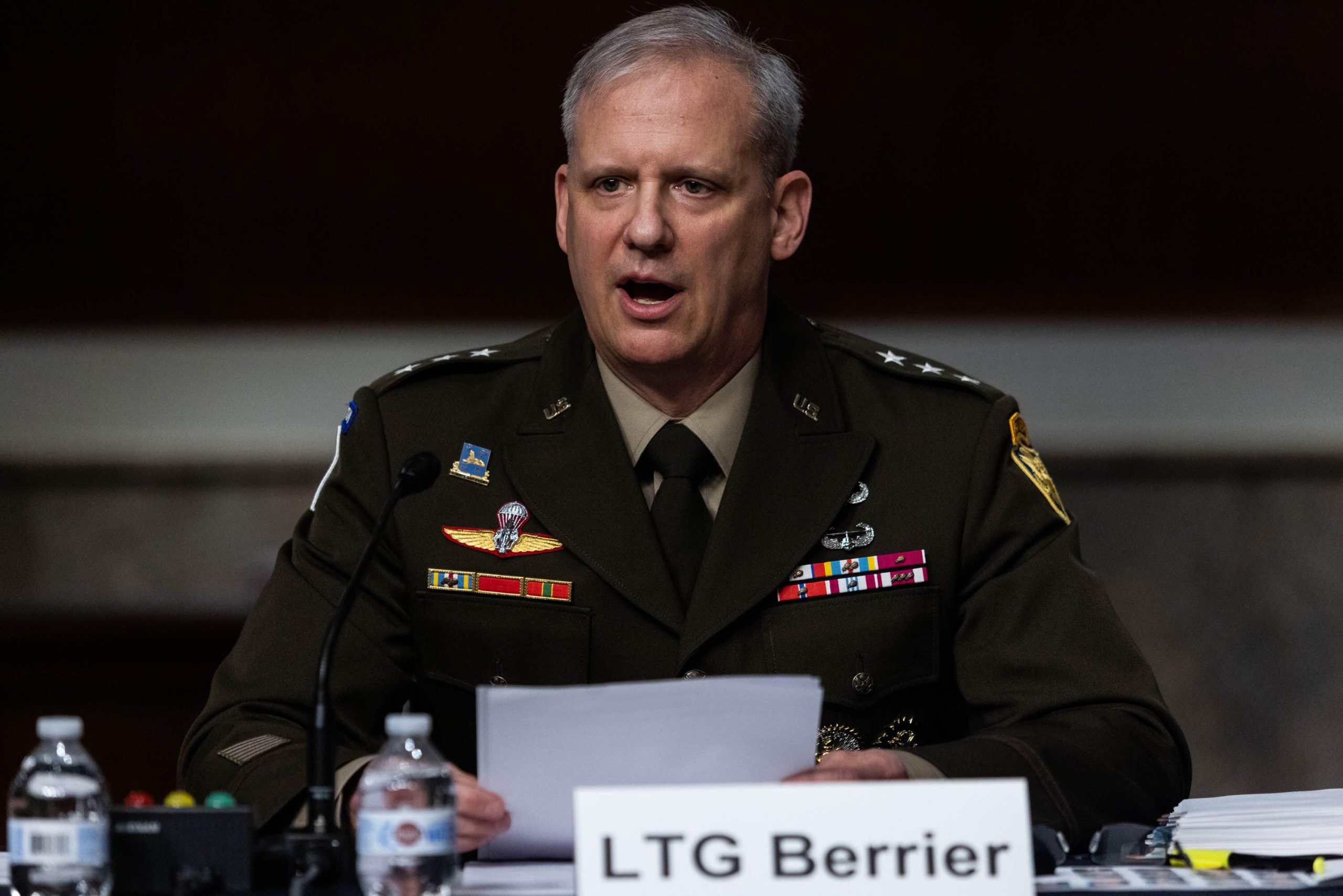
Chris Lange, FISM News
[elfsight_social_share_buttons id=”1″]
China continues to closely monitor the West’s response to Russia’s war on Ukraine with a focus on its own ambitions to invade Taiwan, according to top U.S. intelligence officials testifying before the Senate Armed Services Committee on Tuesday.
“It’s our view that they [the Chinese] are working hard to effectively put themselves into a position in which their military is capable of taking Taiwan over our intervention,” Director of National Intelligence Avril Haines told the committee.
Lt. General Scott Berrier, director of the Defense Intelligence Agency, testified that Beijing wants to take Taiwan “peacefully” but is nonetheless preparing its military as a contingency plan.
“I believe the PRC (People’s Republic of China) would rather not do it by force. I think they would rather do this peacefully over time,” Berrier said.
Chinese President Xi Jinping has stressed previously that “the historical task of the complete reunification” of China with Taiwan “must be fulfilled, and will definitely be fulfilled,” according to reporting by Just the News.
China views Taiwan, a democratically governed island, as its rightful territory and has frequently hinted at its willingness to use force, if necessary, to ensure its unification with the mainland.
Taiwan is a constant source of tension between Washington and Beijing. The U.S. is Taiwan’s biggest international supporter and arms supplier, though it does not have formal diplomatic ties with the independent nation. These tensions have escalated further since Russia invaded Ukraine, as many fear that China is looking to Russia as a learning model for how it could effectively take over Taiwan.
Berrier noted that China is learning “some very interesting lessons” from the Ukraine conflict in terms of leadership and the importance of small unit tactics, effective training, and the need for a powerful non-commissioned officer force. He urged officials to work closely with leaders in Taiwan and U.S. partners in the Indo-Pacific “to help them understand what this conflict has been, about what lessons they can learn and where they should be focusing their dollars on defense and their training.”
“They have a largely conscript force. I don’t believe it is where it should be,” Berrier said of Taiwan.
Heightened Chinese threat
As the U.S. and China face down a potential cold war military arms race, critics of the Biden administration have suggested that the president and the media have deliberately muted the serious threats posed by Beijing.
The criticism surfaced amid Washington’s efforts in 2020 to suppress suggestions that the deadly COVID-19 pandemic originated with a lab leak in China. Only after Biden won the 2020 election did the U.S. intelligence community reverse course and concede the lab leak theory was a plausible cause of the lethal outbreak.
In late January, FBI Director Chris Wray ominously warned that China is America’s most pressing security threat, comparing Beijing’s espionage efforts to steal sensitive technological U.S. secrets with the Soviet’s Cold War efforts to gain military dominance in the world.
“The sheer volume of criminal and threatening actions we see from the Chinese government is immense,” Wray asserted.
Yet two weeks later, the Justice Department suddenly halted a critical FBI counterintelligence program that cracked down on Chinese espionage carried out through academics, professors, and students in a move sharply criticized by the agency’s former intelligence chief.
“China represents the gravest national security threat to this country right now, hands down,” retired Assistant Director for Intelligence Kevin Brock told Just the News, adding “It’s probably not even close [to other threats].” He went on to say that Beijing spies have been “shameless” in their brazen efforts to steal U.S. research and development secrets.
“Anything that these students and professors are obtaining while they’re here in this country is flowing right back to China,” he warned. “…So to shut down that as a counterintelligence avenue or an advantage that we have or an imperative that we have is a little bit shortsighted.”
Last week, U.S.-based defense firm Cybereason warned that an alleged Chinese state-sponsored hacking group, the Winnti Group, has been engaging in an “intricate and extensive” hacking effort targeting defense, energy, aerospace, biotech, and pharma manufacturers across North America, Europe, and Asia.
“The most alarming revelation is that the companies weren’t aware they were breached, going some as far back as at least 2019,” the cyber firm told Just the News. The report was met by silence from the Biden administration.
